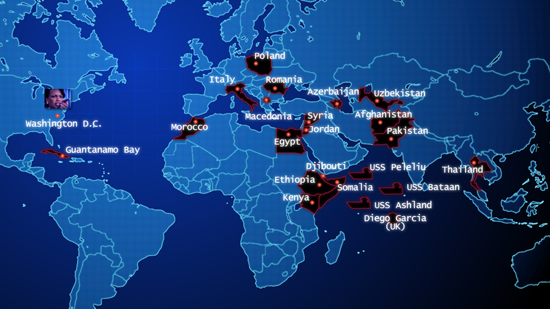By Adom M. Cooper
Impunity Watch Reporter, Middle East
CAIRO, Egypt–Middle Eastern nations Egypt and Israel claim that they wish to return to normal diplomatic activities. But their actions seem to display ‘a dragging of feet’ towards that goal. Yitzhak Levanon, Israel’s ambassador to Egypt, was flown home on Friday 09 September after the embassy was caught in the middle of violent protests in Cairo.

Israeli Prime Minister Binyamin Netanyahu said on Sunday 11 September that his government was in the process on working with Egypt to return Levanon to his post. But Netanyahu reiterated that the recent protests have raised new security concerns that must be solved prior to Levanon’s return.
“We are in touch with the Egyptian government over the necessary arrangements for the return of the ambassador, so that he and staff will be appropriately protected in order to maintain Israeli representation in Cairo.”
After Hosni Mubarak’s ouster on 11 February, the Egyptian army took over leadership of the nation. The transition has been hardly seamless, as the army has painstakingly struggled against controlling public discontent towards Israel since five Egyptian border guards were killed last month when Israel prevented cross-border activities with deadly force. Israel claimed that the group was Palestinian and that eight Israelis were also killed in the border skirmish.
Protection of the Israeli embassy in Cairo has become a prime objective for Egypt. Approximately 16 trucks filled with police and security personnel, three buses of military police, two armored personnel carriers, and several other vehicles all were assembled and parked near the embassy on Sunday 11 September. Mohamed Higazy, Egyptian cabinet spokeswoman expressed these words to Reuters about the increase in embassy security.
“The security in front of the embassy has been enhanced. Returning back to normalcy is the objective for both sides.”
Levanon and approximately 80 embassy staff members were evacuated from Egypt on Friday 09 September following on attack on the Israeli embassy. The attack threatened to disengage the peace treaty between Egypt and Israel that has lasted 32 years.
Egyptian officials reported that at least three people were killed and some 1,000 more injured in the clashes that took place on the evening of Friday 09 September between protesters and security forces at the gates of the Israeli embassy. During the day on 09 September, a peaceful demonstration occurred in already renowned protester hub, Tahrir Square.
During the attack on the embassy, protesters destroyed a cement barrier around the high-rise building and dumped hundreds of Hebrew-language documents out of the windows of the embassy. Some 20 suspects were arrested following the attack, reported the Egyptian interior ministry.
Osama Hassan Heikal, Egypt’s information minister, said that those who took part in the attack would be sent to an emergency state security court. He said that Egyptian authorities would apply “all articles of the emergency law to ensure safety following the embassy attack, and respect international conventions regarding the protection of diplomatic missions.
Egyptian police and military forces also remained stationed in front of the Saudi embassy and the Giza security headquarters. Civilians also attacked these two locations on Friday 09 September.
In a statement on the evening of Saturday 10 September, the military-led transitional government said that it would make use of the detested and loathed “emergency law.” This law allows for extra-judicial detentions as part of a new crackdown on disruptive protests and the transitional government had previously promised to eliminate the 30-year-old emergency legislation. The emergency law was considered a cornerstone of sorts for Mubarak’s regime and was one of the protesters’ primary demands when calling for the end of Mubarak’s reign.
The specific implementation of the transitional government’s statement is unknown. A council of officers has already governed the nation for seven months in suspension of the Constitution, taking measures such as hindering the right to a fair trial. As of 11 September, as many as 12,000 civilians have been subjected to swift military trials.
The ability of the transitional government to maintain control has been very difficult. In trying to restore order to the streets of Egypt without jeopardizing its position as “leader,” the council has chosen to pick its spots in dealing with protesters.
Sometimes, protesters are met head-on with heavy military force. Other times, the military council has made a point to avoid direct confrontation with protesters or even going so far as to meet their demands to maintain a strong public image. The decision to avoid direct confrontation and meet demands proved catastrophic in the situation involving the Israeli embassy.
It is evident that many civilians in Egypt have been placed in a position that virtually renders their long-term concerns irrelevant. First, they called for the end of Hosni Mubarak’s rule and were granted it. But the transition came with inevitable uncertainty. Now, the Egyptian army that has taken Mubarak’s place to lead the country is “punishing” its citizens for their actions. This time, outrage over the situation with Israel.
Until the Egyptian people are given a chance to voice their concerns with substantive means to achieve them, this downward spiral does not appear to have a peaceful an end in sight.
For more information, please see:
Ahram-Egypt and Israel after the embassy-11 September 2011
Al-Jazeera-Egypt and Israel seek to return to ‘normal’ ties-11 September 2011
BBC-Netanyahu says Egypt peace stands despite embassy riot-10 September 2011
The Guardian-Israel faces worst crisis with Egypt for 30 years as diplomats flee-10 September 2011
Human Right Watch-Egypt: Retry or Free 12,000 After Unfair Military Trials-10 September 2011
NYT-After Attack on Embassy, Egypt Vows a Tougher Stance on Protests-10 September 2011
Reuters-Egypt, Israel seek normality after embassy storming-11 September 2011



